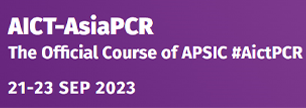


- NEWS
-
-
Scientific LibraryAcute Coronary Syndrom ASCVD Prevention Bifurcation Stenting Cardio-Oncology Congestive Heart Failure DAPT Duration Drug Coated Balloon Fractional Flow ReserveCases VideosE-LearningIndustry Insights
- LIVE REVIEW
-
 Article Link
Article Link

Clinical impact of PCSK9 inhibitor on stabilization and regression of lipid-rich coronary plaques: a near-infrared spectroscopy study
H Ota, H Omori, M Kawasaki et al.
KEYWORDS
PCSK9 inhibitor; lipid-lowering therapy; lipid-rich plaque; near-infrared spectroscopy
AIMS - This study aimed to determine the effects of a proprotein convertase subtilisin-kexin type 9 inhibitor (PCSK9i) on coronary plaque volume and lipid components in patients with a history of coronary artery disease (CAD).
METHODS AND RESULTS - This prospective, open-label, single-centre study analysed non-culprit coronary segments using near-infrared spectroscopy-intravascular ultrasound (NIRS-IVUS) at baseline and follow-up angiography. Following changes in the lipid-lowering treatment based on the most recent guideline, the enrolled subjects were divided into two groups: treatment with PCSK9i and statins (PCSK9i: 21 patients and 40 segments) and statins only (control: 32 patients and 50 segments). The absolute and percent LDL-C reductions were significantly greater in the PCSK9i group than in the control group (between group difference: 59.3 mg/dL and 46.4%; P < 0.001 for both). The percent reduction in normalized atheroma volume and absolute reduction in percent atheroma volume (PAV) were also significantly greater in the PCSK9i group (P < 0.001 for both). Furthermore, the PCSK9i group showed greater regression of maximal lipid core burden index for each of the 4-mm segments (maxLCBI4mm) than the control group (57.0 vs. 25.5; P = 0.010). A significant linear correlation was found between the percent changes in LDL-C and maxLCBI4mm (r = 0.318; P = 0.002), alongside the reduction in PAV (r = 0.386; P < 0.001).
CONCLUSION - The lipid component of non-culprit coronary plaques was significantly decreased by PCSK9i. The effects of statin combined with PCSK9i might be attributed to the stabilization and regression of residual vulnerable coronary plaques in patients with CAD.




















